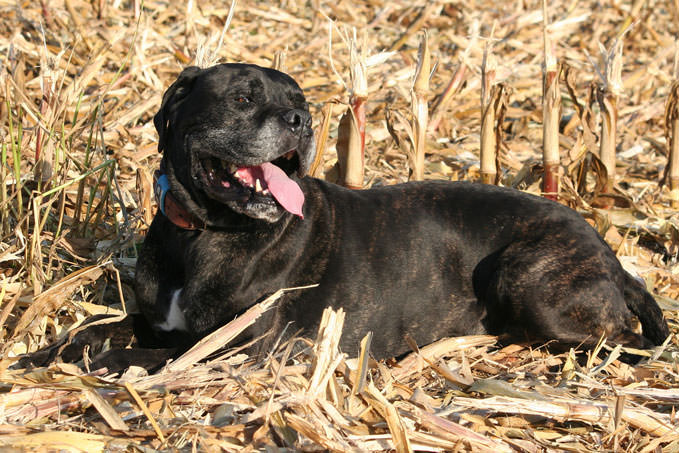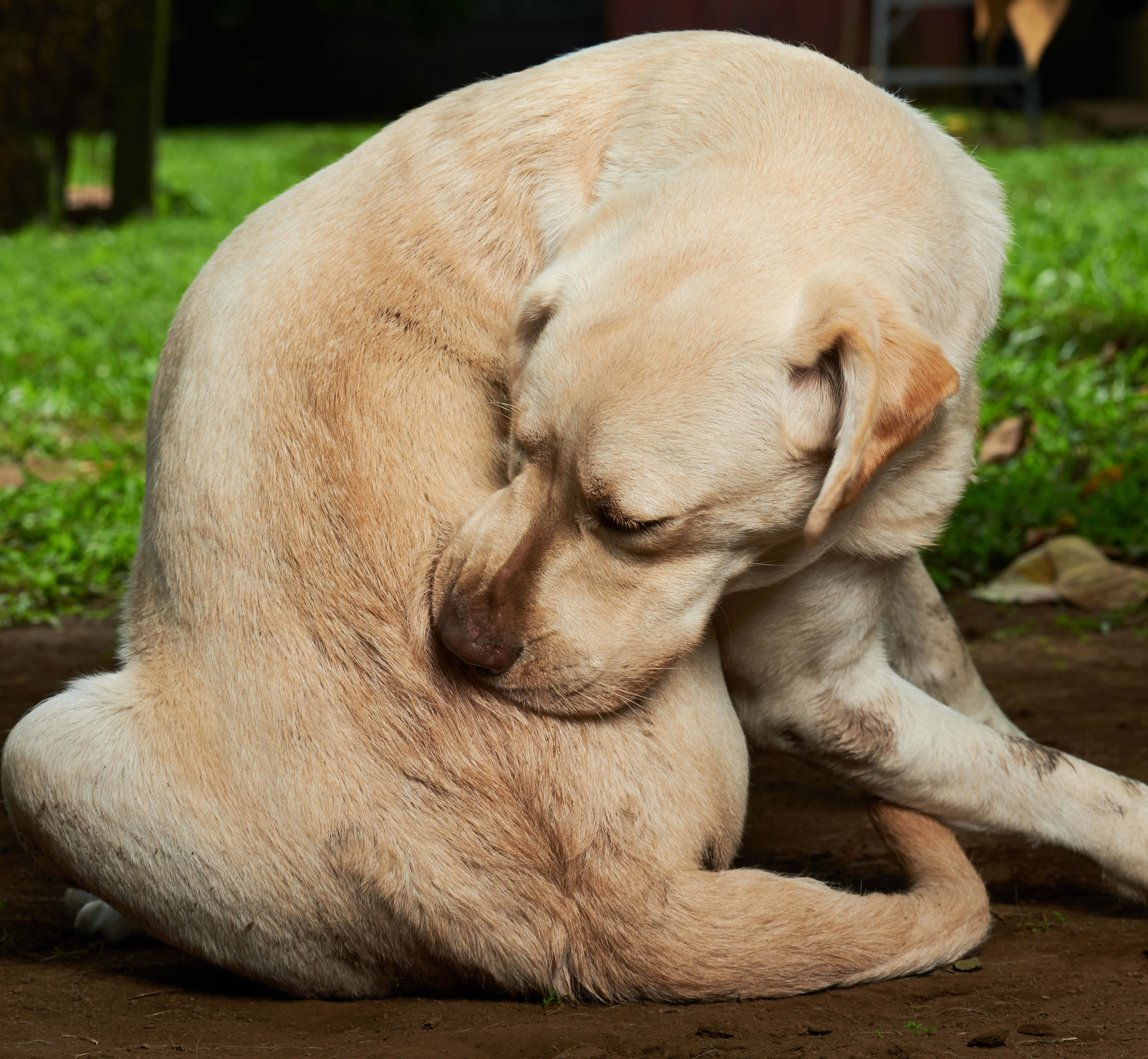When it comes to allergies, people often think of common culprits like pollen or pet dander. But did you know that certain dog breeds can also trigger allergies? One such breed is the Cane Corso. While they may be known for their strength and protective nature, Cane Corsos can cause allergies in some individuals, making it important to consider this factor before bringing one into your home.
Understanding the reasons behind why Cane Corsos can cause allergies is crucial. These allergies are usually triggered by the presence of allergens found in their dander, saliva, and urine. These substances can be easily spread through shedding and can cause symptoms such as sneezing, itching, and congestion in allergy-prone individuals. However, for people who still want to enjoy the company of a Cane Corso, regular grooming and cleaning routines, along with proper ventilation, can help minimize allergic reactions and create a more comfortable environment.
Cane Corsos are generally considered to be hypoallergenic because they have short hair and minimal shedding. However, some individuals may still experience allergies to dog dander, which can trigger allergy symptoms. If you have allergies and are considering getting a Cane Corso, it’s recommended to spend time with the breed beforehand to see if you have any adverse reactions. Additionally, regular grooming and keeping the dog’s living space clean can also help minimize allergens.

Do Cane Corsos Cause Allergies?
Cane Corsos are large, powerful dogs that are known for their protective nature and loyalty. If you’re considering getting a Cane Corso, you may be wondering if they can cause allergies. In this article, we will explore the relationship between Cane Corsos and allergies to provide you with a better understanding of the potential risks and considerations.
Understanding Allergies to Dogs
Before we delve into the specific breed of Cane Corsos, it’s important to understand allergies to dogs in general. Allergies to dogs are typically triggered by allergens, which are substances that can cause an allergic reaction. In the case of dog allergies, the allergens are primarily found in the dog’s dander, saliva, and urine.
When a person with allergies comes into contact with these allergens, their immune system may overreact, triggering symptoms such as sneezing, itching, congestion, and respiratory issues. Some people may also experience skin reactions, such as hives or rashes.
It’s important to note that different individuals may have varying sensitivities to dog allergens. While some people may be highly allergic and experience severe symptoms, others may only have mild or no allergic reactions at all.
Cane Corsos and Allergies
Now let’s address the question at hand: do Cane Corsos cause allergies? The short answer is yes, they can. This is because, like all dogs, Cane Corsos produce allergens in the form of dander, saliva, and urine. Therefore, individuals who are allergic to dogs may also be allergic to Cane Corsos.
However, it’s important to remember that not all Cane Corsos will cause allergies in all individuals. The severity of allergies can vary from person to person, and some individuals may have less severe reactions to certain breeds or individual dogs.
If you or someone in your household has allergies, it’s essential to spend time with a Cane Corso before bringing one into your home. This will help you assess your sensitivity to their allergens and determine if your allergies can be managed.
Managing Allergies to Cane Corsos
If you or a family member are allergic to Cane Corsos, there are several steps you can take to help manage allergies:
- Keep the living space clean and free of allergens by regularly vacuuming, dusting, and washing surfaces.
- Designate specific areas of the house as pet-free zones, such as bedrooms or certain furniture.
- Consider using HEPA air filters or purifiers to help remove allergens from the air.
- Wash your hands after interacting with the dog to minimize allergen transfer.
- Consult with your doctor or allergist for additional advice and treatment options.
By taking these measures, you can create a more comfortable environment for both yourself and your Cane Corso.
Considerations Before Getting a Cane Corso
While Cane Corsos can potentially cause allergies, there are other factors to consider before getting one as a pet:
- Cane Corsos require regular grooming to manage shedding and keep their coat healthy. This can help reduce the amount of allergens they release into the environment.
- They are a large breed that requires ample exercise and mental stimulation. Ensure you have the time and resources to meet their needs.
- Proper training and socialization are essential for Cane Corsos to develop into well-mannered and balanced dogs.
- Consider adopting an adult Cane Corso instead of a puppy to better understand their temperament and potential allergenicity.
Do Cane Corsos Make Good Pets for Allergy Sufferers?
While the potential for allergies with Cane Corsos exists, it’s important to remember that individual sensitivities can vary. Some allergy sufferers may find that they can live comfortably with a Cane Corso by managing their allergies effectively.
If you are considering a Cane Corso as a pet but have allergies, it’s crucial to spend time with the breed before making a final decision. This will allow you to gauge your allergic reactions and make an informed choice.
Ultimately, the decision to bring a Cane Corso into your home should be made after careful consideration of your allergies, lifestyle, and ability to meet the breed’s specific needs. With proper management and care, it is possible for individuals with allergies to enjoy the companionship of a Cane Corso.
Key Takeaways:
- Cane Corsos are not hypoallergenic dogs
- They have a short coat that sheds moderately
- Allergies can be triggered by the dander and saliva of the dog
- Regular grooming and cleaning can help reduce allergens in the environment
- If you have severe allergies, it’s best to consult with a doctor before getting a Cane Corso
Frequently Asked Questions
Cane Corsos are a popular breed of dogs known for their large size and protective nature. However, many people wonder if they can cause allergies. In this section, we will answer some common questions related to allergies and Cane Corsos.
1. Are Cane Corsos hypoallergenic?
Cane Corsos are not considered hypoallergenic. While no dog breed is completely hypoallergenic, some breeds produce fewer allergens, which can be beneficial for individuals with allergies. However, Cane Corsos are not one of those breeds. They have a short, dense coat that can easily trap dander, saliva, and other allergens.
If you have allergies, it is recommended to spend time with a Cane Corso before bringing one into your home to see if you have any allergic reactions. Regular grooming and cleaning of your home can help reduce allergens and minimize allergic reactions.
2. What specific allergens are associated with Cane Corsos?
While Cane Corsos don’t produce more allergens than other breeds, they can still trigger allergies in susceptible individuals. The main allergens associated with Cane Corsos include dander (dead skin cells), saliva, and urine. These allergens can become airborne or stick to surfaces, causing allergic reactions such as sneezing, itching, and respiratory issues.
If you or someone in your household is allergic to dogs, it is important to consult with a healthcare professional to determine the best course of action and whether owning a Cane Corso is suitable for your specific situation.
3. Can allergy symptoms be reduced when living with a Cane Corso?
While it may not be possible to completely eliminate allergy symptoms when living with a Cane Corso, there are steps you can take to minimize allergic reactions:
– Regular grooming: Keeping your Cane Corso’s coat clean and well-maintained can help reduce the amount of allergens present.
– Frequent cleaning: Vacuuming, dusting, and regularly washing surfaces that may collect allergens can help create a cleaner environment.
– Air purification: Using air purifiers with HEPA filters can help remove allergens from the air, improving air quality in your home.
– Personal hygiene: Washing hands and face after interacting with your Cane Corso, avoiding close contact during shedding seasons, and designating pet-free zones in your home can also help reduce allergic reactions.
4. Can Cane Corsos be better for people with allergies compared to other dog breeds?
While every individual’s allergies can vary, Cane Corsos are not typically recommended for people with allergies. Their short, dense coat can trap allergens more easily compared to breeds with hair instead of fur. Additionally, their large size may result in more allergens being present in the environment. If you have allergies, it is important to consider your specific sensitivities and consult with a healthcare professional before deciding on a dog breed.
5. What should I do if I have allergies but still want to own a Cane Corso?
If you have allergies but still want to own a Cane Corso, there are some steps you can take to manage your allergies:
– Consult with a healthcare professional: Discuss your allergies with a healthcare professional to understand the severity and determine if owning a Cane Corso is feasible.
– Take allergy medication: Your healthcare professional may recommend allergy medication to help manage your symptoms when living with a Cane Corso.
– Create an allergy-friendly environment: Use air purifiers, regularly clean your home, and create pet-free zones to minimize exposure to allergens.
– Consider a different breed: If your allergies are severe and unmanageable, it may be best to consider a different dog breed that is more suitable for individuals with allergies.

In summary, while cane corsos may not be hypoallergenic, they do not inherently cause allergies. Allergies are typically triggered by pet dander, which is a protein found in the animal’s skin cells, saliva, and urine. Some individuals may be allergic to the dander produced by cane corsos, while others may not have any allergic reactions to the breed.
If you or someone in your household has allergies, it is recommended to spend time with a cane corso to see if any allergic reactions occur. Regular grooming and cleaning of your dog’s environment can help reduce allergens. It is also advisable to consult with a veterinarian or allergist for further guidance on managing allergies with a cane corso or any other pet.
